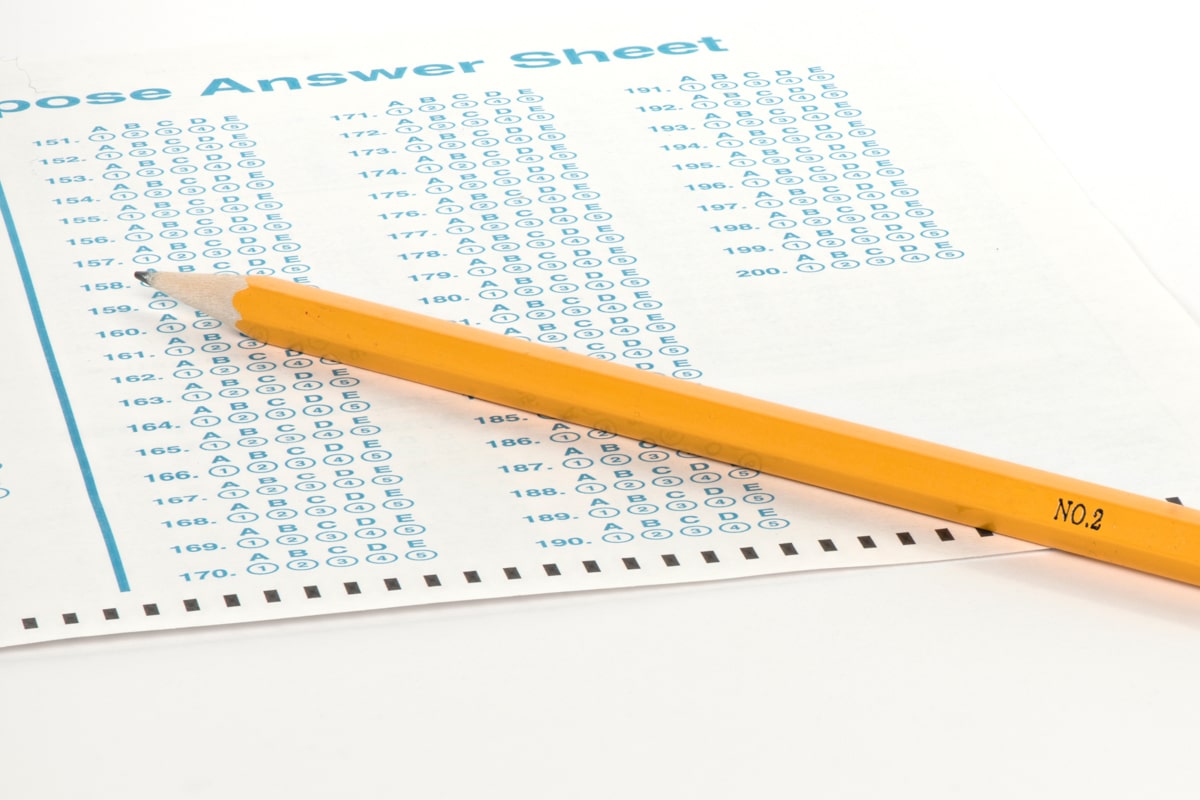Acing Homework But Failing Tests?

Does this sound familiar?
Your student starts the year off strong. They have a high “A”, maybe even a 100%. They are confident, excited. They think maybe this year they’ll ace their math class. Then the first test rolls around and they bomb it. Their grade plummets. You and your student are left in a sea of confusion wondering what went wrong. “Maybe they’re a bad test taker?” You think. “Maybe the test was too hard?” “Maybe it was a fluke?”
Maybe your students actually never learned the material.
Did you know that many teachers aren’t actually grading homework anymore?
Instead they are giving a grade for completion. Teachers are looking to see if a student attempted all of the problems, not if the student has mastered the material. There are many reasons teachers choose this method of grading. It does allow students more time to learn the material before their grade suffers and it also allows teachers to reward students who put in a lot of effort.
However, grading homework on completion can mislead students and parents. You might look at the student’s homework grades, see a line of “A’s” and think your student is really understanding the material. The reality is that a lot of the time they haven’t. Then a big test comes along and the student scores poorly or even fails! Since test grades count more heavily than homework, the student’s grade drops and you are left wondering what happened.
What can you do to make sure your student is actually learning?
First, you should discuss with your student what they think the problem is. Ask him or her to grade their own homework if their teacher goes over the answers in class. By having them calculate their percentage correct on each homework, you and your student will have a much better idea how well they are picking up the material. This will give you time to fix any issues they are having with the material.
If their teacher does not cover all of the homework in class, have your student speak to their teacher and see if they can make an alternative arrangement. Their teacher might give them a copy of the answer key after each assignment so they can grade their own work or their teacher can have your student come in during lunch or after school where they can assist your student with grading.
If your student is unable to find a way to grade their class homework, look for alternative sources of practice problems.
Student editions of textbooks often have the answers to the odds in the back. Have your student do similar problems to those on their homework and then use the attached answer key to assess their ability.
Use online resources like kutasoftware.com, math-aids.com, or mathworksheets4kids.com to find similar problems to those your student is working on in class. The worksheets from these websites come with answer keys that will allow your or your student to grade their work and make sure they are actually understanding the material.
After you get a better idea on how your student is actually doing on their homework, you can make a plan based on their individual needs. For example, if your student is showing mastery over a topic, have them take a practice test to prepare them for their exams or find more difficult problems on the topic to prepare them for the elevated level material found on many tests.
What if it turns out your student isn’t understanding their homework?
Then it is time to call in help.
Our proven methods will have your student not only understanding the material, but also have them conquering tests.
Why does our method work?
We actually teach the material! Our interactive style ensures that students are following our instruction and actually understand their math homework.
We make sure our students can duplicate problems independently, so they are not reliant on us or examples. This prepares them for test taking conditions.
We give students extra practice. Math, like any skill, takes time and practice to master. We make sure our students not only learn the skills they need, but also retain them for the long run.
We begin preparing for difficult tests early by giving students challenging problems and practice exams that mirror the material they’ll see on their school tests.
Bottom line: When students actually learn the material they will do well on tests. We teach, so that they learn.


I like it